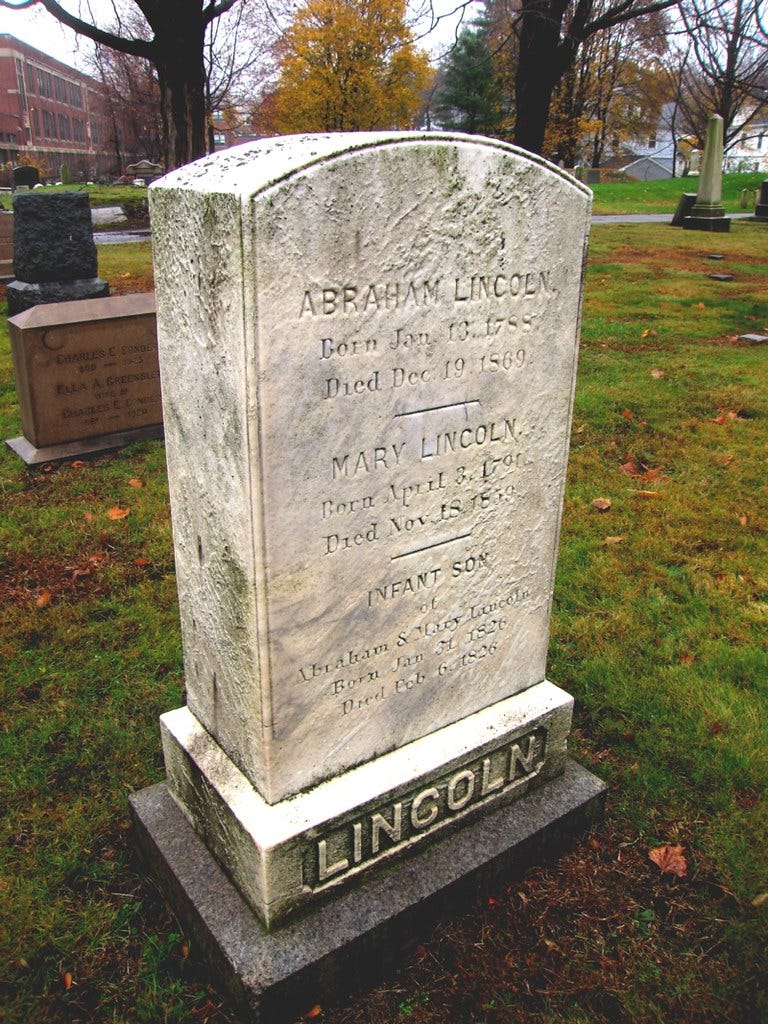Kevin Frazier: Our democracy is still a disaster.
If you roused Lincoln from his grave, he'd be appalled by the state of our democracy.
Editor’s note: If, like me, last night left you more inspired than ever to improve our democracy — the way we vote, the candidates we selected from, the institutions that shape our daily lives — please send me a note at kfraz@berkeley.edu for potential inclusion in a special blog post featuring thoughts from you, members of The Oregon Way community.
*************************************************************************************************************
Kevin Frazier does his best to edit The Oregon Way while “attending” the UC Berkeley School of Law. He is splitting his time between SF and Oregon.
The dust may be settling, but the picture is still not pretty. Our democracy is off track.

Our democratic crisis is not over. Far from it. At the national level, the comfort afforded by the increasingly-likely outcome of the popular vote and Electoral College aligning should not lull us into a false sense of security. It's true that the will of the voters may prevail this time around, but absent structural changes, there's no guaranteeing the system won't soon again result in minority control of all branches of government.
At the state level, the path of Shemia Fagan to Secretary of State evidences the manifold flaws in our party-controlled, closed-primary system. Fagan won just 209,682 votes in the Democratic primary. Upwards of 1,000,000 Oregonians, those registered with third parties or as non-affiliated voters, had no chance to participate in that race—which, for all intents and purposes, served as the de facto general election.
If you roused President Lincoln from his grave, he'd be appalled by the state of our democracy. In his first inaugural address, he made clear that "the only true sovereign of a free people" is a "majority held in restraint by constitutional checks and limitations, and always changing easily with deliberate changes of popular opinions."
Breaking this definition down piece by piece reveals how far our state's democracy has strayed from the vision set by Lincoln. I'll save a discussion of our nation's democratic health for another day.
Federal fixes are necessary, but Oregon’s system is similarly flawed

First, in Oregon, it's not the majority that needs restraining. What's gone unchecked is the influence of a minority of Oregon voters, the respective participants in the primaries of the major parties. These voters, as in the case of Fagan, set the electoral menu for the plurality of Oregon's voters—those unaligned with either major party.
These third party and non affiliated voters in theory had a choice between Fagan, Kim Thatcher (the Republican candidate, who also evaded the input of non-major party voters), Kyle Markley (a Libertarian) and Nathalie Paravicini (representing the Progressive Party and Pacific Green Party). However, few would readily agree that Oregonians truly had meaningful choices in this election; it's not a secret that selecting someone other than the Democratic or Republican nominee is essentially a wasted vote.
Second, the sort of “checks and limitations” that Lincoln envisioned have failed to restrain the major parties from completely dominating elections and the legislature itself.
Informal rules, such as how committee chairs are assigned in the State Legislature, were created by the major parties, for the major parties. As a result, moderate officials that may align with the "silent plurality" of Oregon voters are forced to play party politics as a way to get their preferred committee assignments (read Rich Vial’s most recent post to learn more).
In the electoral context, the State reinforces party power instead of checking it. Under the current closed-primary system, tax dollars from members of the silent plurality fund the nominating races of the major parties. So, rather than limit the influence of these minority parties, the State empowers them at the expense of non-affiliated and third party voters.
Third, the current system hardly adjusts easily for "deliberate changes of popular opinions."
There's perhaps no clearer manifestation of that fact than the disenfranchisement of the silent plurality, voters forced to side on the sidelines during the primaries. The increasing number of non-affiliated voters should have led to a reformed electoral structure ages ago. Instead, a closed primary has remained the norm.
As Lincoln specified, "Unanimity is impossible," however, "the rule of a minority, as a permanent arrangement, is wholly inadmissible." The control of so-called major parties at the expense of the silent plurality is not acceptable. We need open primaries in which all voters can identify their top two, three, or four choices from the candidates of all parties. This approach will give voice to the plurality of Oregonians that have grown tired of the major parties.
*************************************************************
Keep the conversation going: Facebook (facebook.com/oregonway), Twitter (@the_oregon_way)
#55



